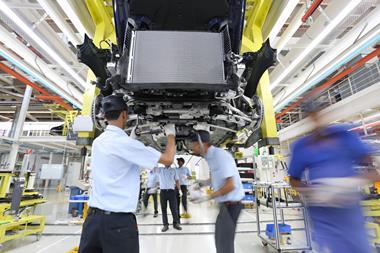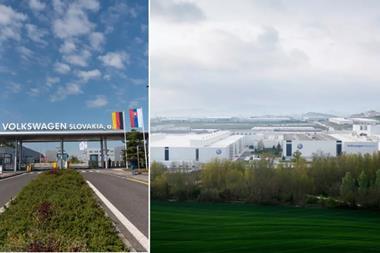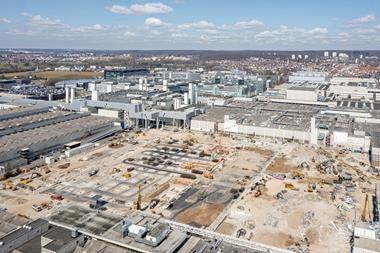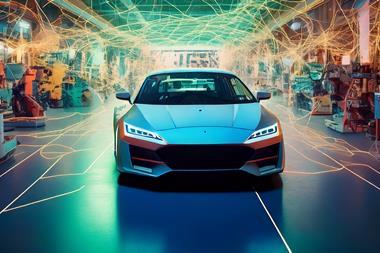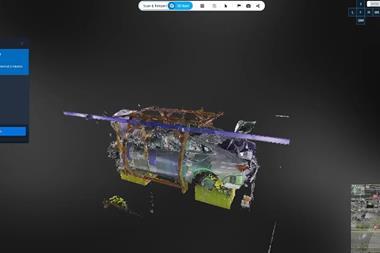As 2018 draws to a close, the pace of change in vehicle manufacturing is accelerating. The move to EVs is gaining speed while the companies themselves continue to realign and optimise their manufacturing footprints.
The future of the Renault-Nissan-Mitsubishi alliance has been thrown into doubt with the arrest of Carlos Ghosn in Japan. Quite what this will mean will not be apparent for some time, and relations between Renault HQ in Paris and Nissan management in Japan are far from harmonious; they are unlikely to improve following the news that Carlos Ghosn was planning to sack his former protégé, Hiroto Saikawa, as Nissan CEO before his arrest.Meanwhile, Volkswagen has confirmed that three German factories – Zwickau, Emden and Hanover but not its main plant of Wolfsburg – will be converted into electric vehicle plants.
To make this possible, Volkswagen will move the next Passat to Skoda’s Kvasiny plant in 2022/23 (reversing earlier plans to move the Skoda Superb to Emden where it would have been made alongside the Passat). This will increase pressure on Skoda’s own capacity, so a new multi-brand factory will be built in eastern Europe (possibly Romania) to produce the Skoda Karoq and other models currently made in Kvasiny.
Volkswagen is also in the early stages of bringing its alliance with Ford to life. This will begin in light commercial vehicles and while no details have been confirmed, the next Volkswagen Transporter could be made by Ford in Turkey, using the Transit platform; in the US, Ford’s spare capacity could be used by Volkswagen rather than Volkswagen opening a new plant, although the German company is still looking for new manufacturing sites in the US.
Volkswagen could also use Ford platforms for pick-ups for the North American market, but this may not be confirmed until Ford’s own restructuring plans – which are likely to involve 25,000 job cuts worldwide – have been confirmed. Ford will likely follow GM in announcing US plant closures, incurring President Trump’s wrath unavoidably, but cutbacks in Europe too are expected.
The future of part of the Valencia plant in Spain must be in doubt with the rapid decline in volumes for the Mondeo and sister vehicles, S-Max and Galaxy. It’s unlikely that Ford will cut back at Ford in Turkey where the Transit is made, but what will happen in Spain, Romania (where the EcoSport is made, with a new also crossover expected) or the two German plants remains to be seen.
As if all this was not enough, Fiat has added to the changing picture; it will not now move the next Panda to Poland, retaining it in Pomigliano d’Arco in the south of Italy. This plant will also make a mini Jeep, based on the Panda, while the Jeep Compass will be added to the Melfi plant which already makes the Jeep Renegade and Fiat 500X. The all-electric version of the 500 will be made in Mirafiori, giving a modest lifeline to the former centre of Fiat’s manufacturing operations, while ICE-powered 500s will remain in Poland.
PSA meanwhile continues to integrate the Opel/Vauxhall network into its operations; significant investment at PSA’s plants in Sochaux and Mulhouse will result in these two neighbouring factories together capable of making close to 900,000 vehicles; with 150,000 capacity in Rennes and a similar number in Poissy near Paris, along with a 160,000 unit van plant in northern France, PSA will soon be making well over to 1.25m vehicles a year in France. PSA’s confidence that its new crossover and expanding DS range will fill its domestic plants has led to it allocating more product to its plants in Spain, and re-allocating the Opel Grandland X to Eisenach.
Interestingly, PSA has also decided to sell its stake in its joint venture with Toyota at Kolin in the Czech Republic to its Japanese partner. Toyota will take over production of the PSA C1 and 108 models until the end of the current models’ lives but whether this will be continued remains to be seen. In 2019 we can expect further news at PSA regarding where the next Mokka X will be made, before attention turns to the future of the Astra and what this means for the UK Ellesmere Port and Polish Gliwice factories. Sales of the Astra continue to fall, and the UK plant has seen three sets of redundancies in line with declining production there.
It seemed odd when GM decided to use two factories to make the Astra when no other competitor vehicles with similar volumes were made in two plants. Production arrangements for the next Astra will likely be announced until Brexit is settled. Brexit will, of course, likely further changes to the geography of vehicle manufacturing in Europe, but this is for next year. The industry has had enough change to manage in 2018 and for now could perhaps do with a period of stability. Whether it will get it remains to be seen.





























